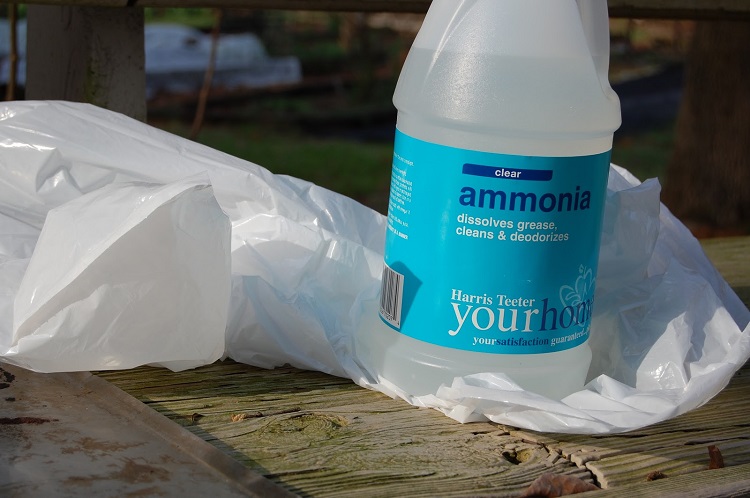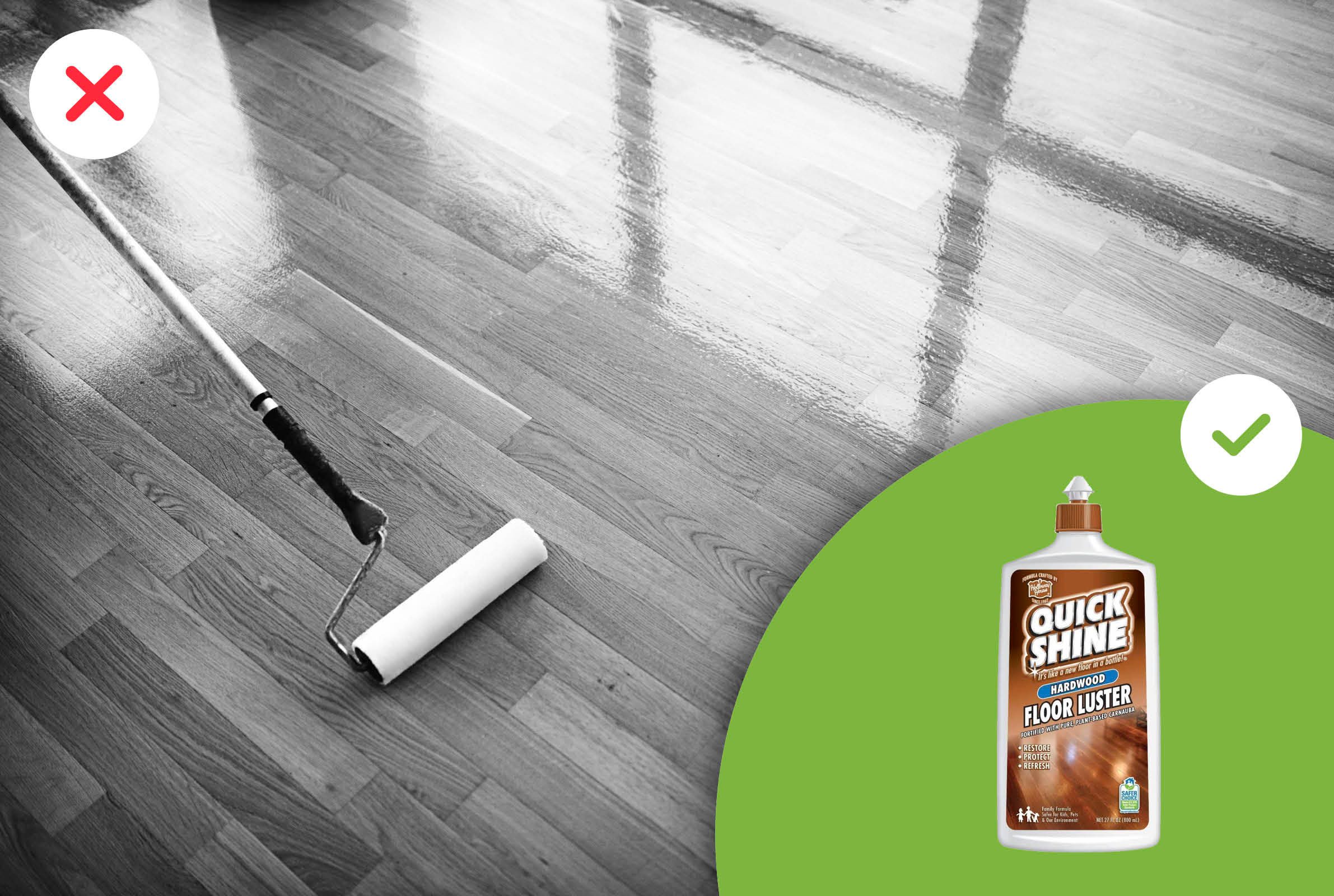Hardwood floors are a beautiful and durable addition to any home, but keeping them pristine can feel like a constant battle against dust, dirt, and spills. While there are countless cleaning products on the market, many homeowners turn to tried-and-true solutions like ammonia. But is ammonia really a safe and effective way to clean your prized hardwood floors?

Image: livingpristine.com
The answer, like many things in life, is a bit more nuanced than a simple yes or no. While ammonia can be a potent cleaning agent, it also comes with its own set of risks and potential drawbacks when applied to hardwood floors. To make an informed decision about using ammonia on your floors, it’s essential to understand its pros and cons, as well as the best practices for using it safely and effectively.
The Allure of Ammonia
Ammonia has long been a staple in cleaning solutions, earning its reputation as a powerful cleaner for its ability to break down grease, grime, and even some bacteria. Its effectiveness stems from its chemical makeup: a highly alkaline solution that can strip away dirt and grime with ease. This powerful cleaning action makes it attractive for tackling tough messes, even on surfaces like hardwood floors.
The Risks of Ammonia on Hardwood Floors
Despite its cleaning prowess, ammonia can pose significant risks to your hardwood floors. The most prominent concern is the potential for damage to the finish. Hardwood floors are typically coated with a protective sealant, often a polyurethane or varnish. This sealant provides the floor’s durability and resistance to scratches, stains, and water damage. However, the alkalinity of ammonia can react with this sealant over time, causing it to break down, become cloudy, or even strip away altogether, leaving the wood vulnerable to damage.
Beyond damaging the finish, ammonia can also cause the wood itself to swell or warp. This risk is especially heightened if the wood isn’t properly sealed or if the ammonia solution is left on the floor for too long. Furthermore, ammonia’s strong odor can linger long after the cleaning process, posing a health concern for individuals with respiratory sensitivities.
Alternatives to Ammonia for Hardwood Floor Cleaning
Fear not, hardwood floor enthusiasts! There are plenty of alternatives that can effectively clean your floors without posing the same risks as ammonia. Here are some popular and safe options:

Image: mromavolley.com
1. Dish Soap and Water
One of the simplest and safest ways to clean hardwood floors is with a solution of mild dish soap and warm water. Dish soap effectively cuts through grease and dirt while being gentle on wood finishes. The key is to use a minimal amount of soap (a few drops are usually sufficient) and to ensure the solution is thoroughly rinsed off the floor to prevent any soap residue build-up.
2. Vinegar and Water
Vinegar is a natural cleaning agent that boasts a wide range of uses, including hardwood floor cleaning. The acidic nature of vinegar helps cut through dirt and grime, and it also has mild disinfectant properties. To create a cleaning solution, mix equal parts of white vinegar and water in a spray bottle. Spray the solution onto your floors, let it sit for a few minutes, and then mop with a clean, damp cloth. Vinegar also has the added benefit of helping to eliminate lingering odors.
3. Commercial Hardwood Floor Cleaners
There is a wide selection of commercially available hardwood floor cleaners designed specifically for this purpose. Look for cleaners that are pH-neutral or slightly acidic, as these are safer for the wood and finish. When choosing a cleaner, check the label for instructions and safety precautions. Always test the cleaner on an inconspicuous area of your floor before using it on the entire surface.
Best Practices for Safe and Effective Cleaning
Whether you choose ammonia or a safer alternative, here are some general best practices to keep in mind when cleaning hardwood floors:
- Before cleaning, always sweep or vacuum your floors to remove loose debris. This will help to prevent dirt from being spread around as you mop.
- Use a cleaning solution that is specifically designed for hardwood floors. This will help to prevent damage to the finish and the wood.
- Always test the cleaning solution on an inconspicuous area of the floor first. This will help to ensure that the solution will not damage the finish or the wood.
- Use a soft-bristled mop or a microfiber cloth when cleaning. Avoid using abrasive cleaners or sponges, as these can scratch the finish.
- Wring out the mop or cloth thoroughly before cleaning. Too much moisture can damage the wood and finish.
- Clean your floors in the direction of the wood grain. This will help to prevent the formation of streaks.
- Rinse the floors thoroughly after cleaning. This will help to remove any cleaning solution residue that could damage the finish or the wood.
- Let the floors dry completely before walking on them. This will help to prevent water stains and damage.
Can You Use Ammonia To Clean Hardwood Floors
The Final Verdict
While ammonia might seem like a quick and potent solution for your hardwood floor woes, the risks associated with its use outweigh its advantages. The potential for finish damage, wood warping, and lingering odors makes it a risky choice for preserving the beauty and integrity of your hardwood floors. Fortunately, alternatives are readily available, offering a safe and effective path to keeping your floors sparkling clean.
Remember, a clean and well-maintained hardwood floor is an investment in your home’s beauty and longevity. By embracing safe and proven cleaning methods, you can enjoy the elegance of your floors for years to come.





